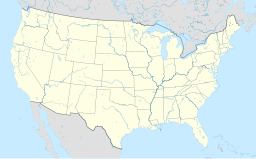Norvelt, Pennsylvania
| Norvelt, Pennsylvania | |
| Westmoreland Homesteads | |
| Census-designated place | |
|
Post Office and Norvelt Union Church
Mount Pleasant Road |
|
| Official name: Village of Norvelt | |
| Named for: Eleanor Roosevelt | |
| Country | United States |
|---|---|
| State | Pennsylvania |
| County | Westmoreland |
| Township | Mount Pleasant |
| Elevation | 1,010 ft (308 m) |
| Coordinates | 40°12′34″N 79°30′13″W / 40.20944°N 79.50361°WCoordinates: 40°12′34″N 79°30′13″W / 40.20944°N 79.50361°W |
| Population | 948 (2010) |
| Founded | 1934 |
| Timezone | EST (UTC-5) |
| - summer (DST) | EDT (UTC-4) |
| ZIP code | 15674 (Norvelt) |
| Area code | Area code 724 |
| School District | Mount Pleasant Area School District |
Norvelt is a census-designated place in Mount Pleasant Township, Westmoreland County, Pennsylvania, United States. The community was part of the Calumet-Norvelt CDP for the 2000 census, but was split into the two separate communities of Calumet and Norvelt for the 2010 census. Calumet was a typical company town, locally referred to as a "patch" or "patch town", built by a single company to house coal miners as cheaply as possible. On the other hand, Norvelt was created during the depression by the US federal government as a model community, intended to increase the standard of living of laid-off coal miners.
Dedicated on September 8, 2002 by the Pennsylvania Historical and Museum Commission.
A Pennsylvania Historical Marker located at LR 6406 Mount Pleasant Road (State Route 982) on the Volunteer Fire Department V.F.D. property, Norvelt reads:
Originally called "Westmoreland Homesteads", Norvelt was established April 13, 1934, by the federal government as part of a New Deal homestead project. With 250 homes, Norvelt provided housing, work, and a community environment to unemployed workers and their families during the Great Depression. It was renamed “Norvelt" in 1937 in honor of First Lady Eleanor Roosevelt and her interest in the project.
In 1933, as part of the sweeping National Industrial Recovery Act (NIRA), Congress allocated $25 million for the creation of "subsistence homesteads" for dislocated industrial workers. Over the course of the program’s eleven-year history, the federal government seeded nearly 100 planned, cooperative communities. Norvelt, in southwestern Pennsylvania, was the fourth. The idea for the program was a throwback to the Jeffersonian ideal of a "back to the land" movement, popularized by Americans who promoted small-scale subsistence farming as an antidote to economic exploitation and the alienation of modern life. The idea gained strength in the 1920s among a wide variety of progressive organizations, including church-related groups such as the American Friends Service Committee (AFSC) which was the social services arm of the Religious Society of Friends (Quakers). During the 1920s, the AFSC had become deeply concerned with the violence that resulted from labor strife, particularly in the bituminous coal fields of Appalachia. So AFSC volunteers traveled to the bituminous-coal regions in West Virginia and Pennsylvania to help the families of striking and unemployed coal miners. The AFSC also believed in the necessity of economic and social justice as a means of insuring lasting peace in this section of the United States. To that end, it clothed and fed the families of unemployed miners during strikes, and later launched subsistence gardening and vocational retraining programs. After the onset of the Great Depression, these experiences placed the AFSC in the forefront of the movement for cooperative communities, so much so that the Department of the Interior, headed by Altoona native Harold Ickes, in 1933 recruited AFSC staff to guide its subsistence homesteads program.
...
Wikipedia



